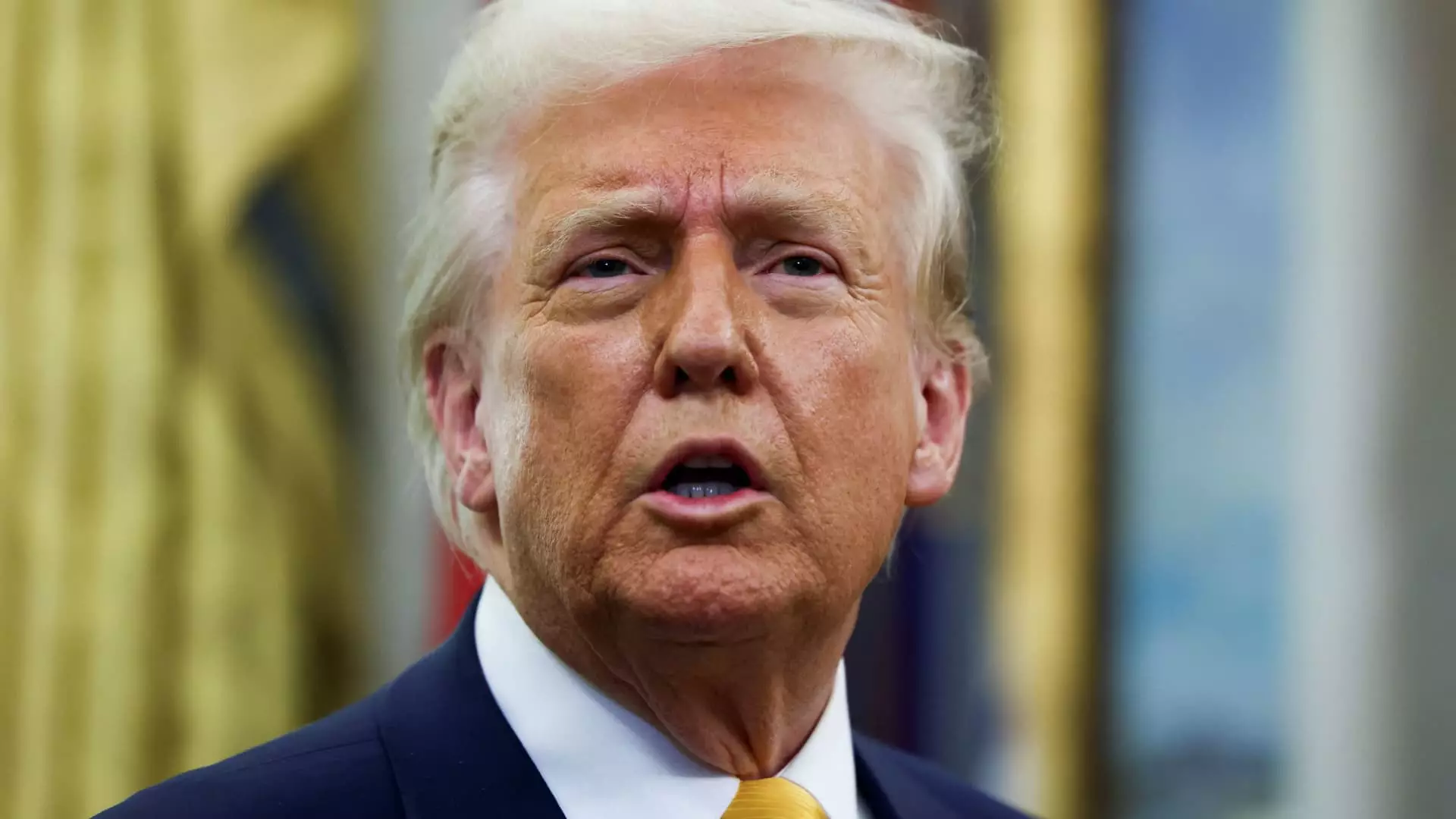In recent weeks, the Dow Jones Industrial Average has witnessed a significant nosedive, shedding nearly 900 points in one fateful day. This tumultuous decline has sparked an urgent debate over the credibility of the stock market as a reliable indicator of the overall economic landscape. The White House maintains an intriguing stance, suggesting that the optimism oozing from certain business leaders should provide a glimmer of hope. However, this perspective appears naïve when so many fundamental issues are at play. If anything, the government’s unwillingness to fully acknowledge the underlying economic anxieties only deepens the rift between what is projected and what actually exists.
The concept of “animal spirits,” drawn from economist John Maynard Keynes, helps explain this divergence. When investors act on instincts rather than analytical reasoning, the stock market becomes a volatile reflection of sentiment rather than a reliable metric. The current sell-off, attributed to a mix of irrational fears and logical concerns, crystallizes this concept perfectly. The question arises: how can we trust a market that dances to the whims of transient emotions, especially when those who shape policy seem oblivious to the shifting tides?
The Tariff Chaos: A Recipe for Economic Instability
One of the primary contributors to the recent market malaise is the reckless trade policy emanating from Washington. The imposition of a staggering 25% tariff on imports from Mexico and Canada, previously announced and abruptly rescinded only to be revived again, ignites unparalleled uncertainty among investors. This chaotic trade narrative resonates deeply with stakeholders who favor consistency and transparency above all.
Billionaire advisor Elon Musk’s involvement in overseeing mass layoffs within federal employment only heightens the unsettling atmosphere of volatility. When key players in the economy perceive instability within the regulatory and operational frameworks, it triggers a migration towards safer investment havens, as rational minds opt to shield their wealth from potential economic fallout.
Scott Lincicome from the CATO Institute aptly posits that the once-vibrant “animal spirits” propelling market growth have fizzled out as individuals turn their gaze toward downside risks. The concept of higher prices coupled with rampant uncertainty paves the way for a cautious investor mentality. At a moment when optimism is fading, reliance on erratic administrative decisions only exacerbates distrust in the prevailing economic narrative.
Political Blinders: The Denial of Economic Challenges
In an unusual twist, President Trump appears to have shifted his gaze from financial markets as a measure of economic progress to promoting substantial investments promised by major corporations. While commitments from companies like Apple and Softbank are certainly admirable, they do not provide a comprehensive remedy to the underlying turbulence fueling market volatility.
Such maneuvers feel more like psychological bravado rather than tangible indicators of economic health. When the administration heralds corporate pledges as a legitimate endorsement of its policies, it rings hollow against the backdrop of real-world challenges confronting everyday Americans. The accolades for past job and wage growth lose their weight in the face of real-time issues that directly affect livelihoods.
The Cost of Disconnection: The Human Element
Real estate and stock prices alone cannot dictate economic health; they must be contextualized within the broader narrative of human lives impacted by these fluctuations. The unfortunate reality is that when the stock market tumbles, it is not just numbers on a screen that are affected but people struggling to afford groceries or rent.
As we take stock of the current economic situation, an empathetic approach to public policy becomes paramount. The White House’s optimism, while well-intentioned, feels at odds with the sentiments reflected across households grappling with uncertainty. Policymakers should not only prioritize corporate commitments but also address the structural issues that stand in the way of sustained economic prosperity for the average citizen.
Economic stability should not be viewed through the lens of temporary fiscal triumphs or the rhetoric of leaders, but rather through the lived experiences of those who navigate an increasingly precarious financial landscape. It is the role of our leaders to connect policy to the realities faced by their constituents; failing to do so may lead to a continued erosion of trust in both market systems and governmental authority.


Leave a Reply